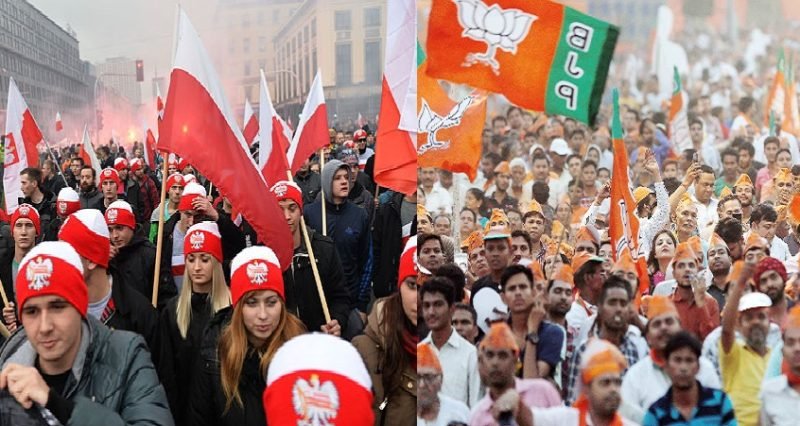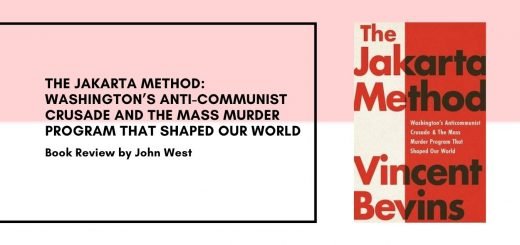Can the BJP and PiS breathe new life into India-Poland relations?

Though India and Poland both acknowledge the growing economic and defence cooperation between the two countries, India-Poland relations has not materialized to its expected potential. India does not share Poland’s enthusiasm for upgrading this bilateral partnership to a strategic one. For India, the overall trade numbers may not be substantial enough for a strategic partnership but India’s reluctance in expanding this partnership also arises from Poland’s low significance and influence in India’s societal and political issues.
This is quite evident from the fact that the last visit by an Indian Prime Minister to Poland was in 1979. But as political communication is becoming increasingly polarized and globalized, international relations are witnessing a growing phenomenon of transnational alliances between political parties with similar ideologies. This presents a unique opportunity for ruling right-wing parties, such as India’s Bharatiya Janata Party (BJP) and Poland’s Prawo i Sprawiedliwość (PiS), whose strategic cooperation will not only consolidate their narratives but also boost India-Poland relations.
Transnational engagement between political parties based on similar political ideology is not novel in international relations and is actually more common among parties with left-wing ideology. In the late 1800s, when the Marxist ideology started gaining ground, socialist parties across Europe worked closely with each other before nationalism took precedence during the World War era. The Cold War era also saw close cooperation between the communist and socialist parties across the world. The Congress-led India’s close ties with the Soviet during the Cold War also facilitated close relations between India and a communist Poland, where India’s first Prime Minister, Jawaharlal Nehru received a grand welcome in 1955.
Compared to left-wing governments, transnational alliances between right-wing governments have been less prevalent. As nationalism is a key aspect of right-wing ideology, cooperation between right-wing governments is often hindered by national interests, which take high precedence in respective foreign policies. Since 2010, as right-wing political parties came into power in Australia, Brazil, India, Israel, Poland, the UK and the US, a global right-wing alliance is increasingly shaping the cooperation between these countries. Faced with regular criticism from left-wing media and institutions on domestic and international issues, these right-wing governments are increasingly backing each other through symbolic gestures and have established common positions on key global issues. For example, the right-wing governments of Hungary and Poland have formed a strong alliance within the European Union and constantly backed each other’s positions.

They have often promised to use their veto powers to block any attempts by the European Commission to impose sanctions or trigger Article 7 against either of them. In 2019, when Indian PM Modi uttered the words, “Abki baar Trump Sarkar” (This time, Trump government) at the Howdy Modi event in the US, it raised several eyebrows. Questions were raised by the US and Indian opposition parties as to whether PM Modi was publicly endorsing Trump’s candidacy. Though the Indian government dismissed these allegations, PM Modi is often praised and admired by his right-wing counterparts from Australia, Brazil, Israel, the UK and the US.
Since the BJP came into power, the Indian government has increasingly reached out to governments and politicians with right-wing ideologies. After the abrogation of Article 370, the BJP-led government invited the delegation of 27 right-wing MEPs to assess the situation in Kashmir and many of whom later endorsed India’s position. Among this delegation, six MEPs belonged to Poland’s ruling right-wing party PiS, who has often supported India’s position on Kashmir. When the Kashmir issue was brought up during an EU Parliament session, PiS MEP, Ryszard Czarnecki strongly urged the EU to support India and even criticized Pakistan for promoting terrorist activities in the region.
Similar to the BJP, the PiS also secured consecutive electoral victories during this decade and has formed closer relations with the right-wing governments of Brazil, Hungary, and the US. The overlapping political ideologies and constant criticism from left-wing media over recent policies present a unique opportunity for the BJP and PiS to engage with each other beyond the government level of cooperation.
Irrespective of being in power, PiS and BJP share similar views on the issues of Islamic extremism, terrorism, illegal immigration, and national identity. PiS’s tough stand against illegal immigration was one of the key factors that led them to power in 2015. During the 2015 European refugee crisis, the PiS-led government strongly opposed the EU’s plan to relocate refugees across Poland and the rest of the EU. According to PiS politicians, such as Dominik Tarczynski, the Islamic ideology and extremism prevalent among the Muslim refugees pose a threat to the Polish society, which is based on Christian values. Both PiS and BJP favour the revivalism of traditionalist values and endorse a religion-based national identity. In India, the BJP has championed for issues related to Hindu religion, culture, spirituality and identity.

Due to their political positions and policies, the BJP and PiS-led governments are often criticized by the left-wing and the Islamic media. For instance, the BJP’s core electoral promises of abrogation of special status to Kashmir and abolition of the discriminatory Islamic practise of triple talaq have come under strong criticism from media channels such as The Guardian and Al-Jazeera, who have also criticized Poland over its domestic and international policies. Such negative criticism in international media may hardly impact the electoral fortunes of PiS and BJP but they can undermine the brand image of India and Poland. To address the media’s negative portrayal of their governments, it is mutually beneficial for both, the BJP and PiS to engage in a Public Relations (PR) partnership. As the BJP and PiS will be in power for at least the next three to four years, a collaboration in strategic PR and media communication undertaken during this period can lay the ground for more substantial partnerships at the governmental level.
With right-wing governments in all Visegrád states, the voice of V4 has also become more united and coordinated within the EU. This was evident during the refugee crisis when the right-wing governments of Visegrád states took a united stand against the EU’s decision to allocate refugees across Europe. The current political scenario presents conducive conditions for a potential right-wing alliance between the V4 and India that can expand into significant political gestures and joint statements. For example, the presence of Poland or V4 as chief guests at the Indian Republic Day celebrations will significantly boost intergovernmental partnerships between these countries. The groundwork for these gestures can be easily initiated and laid through dialogues at the political party level.


















